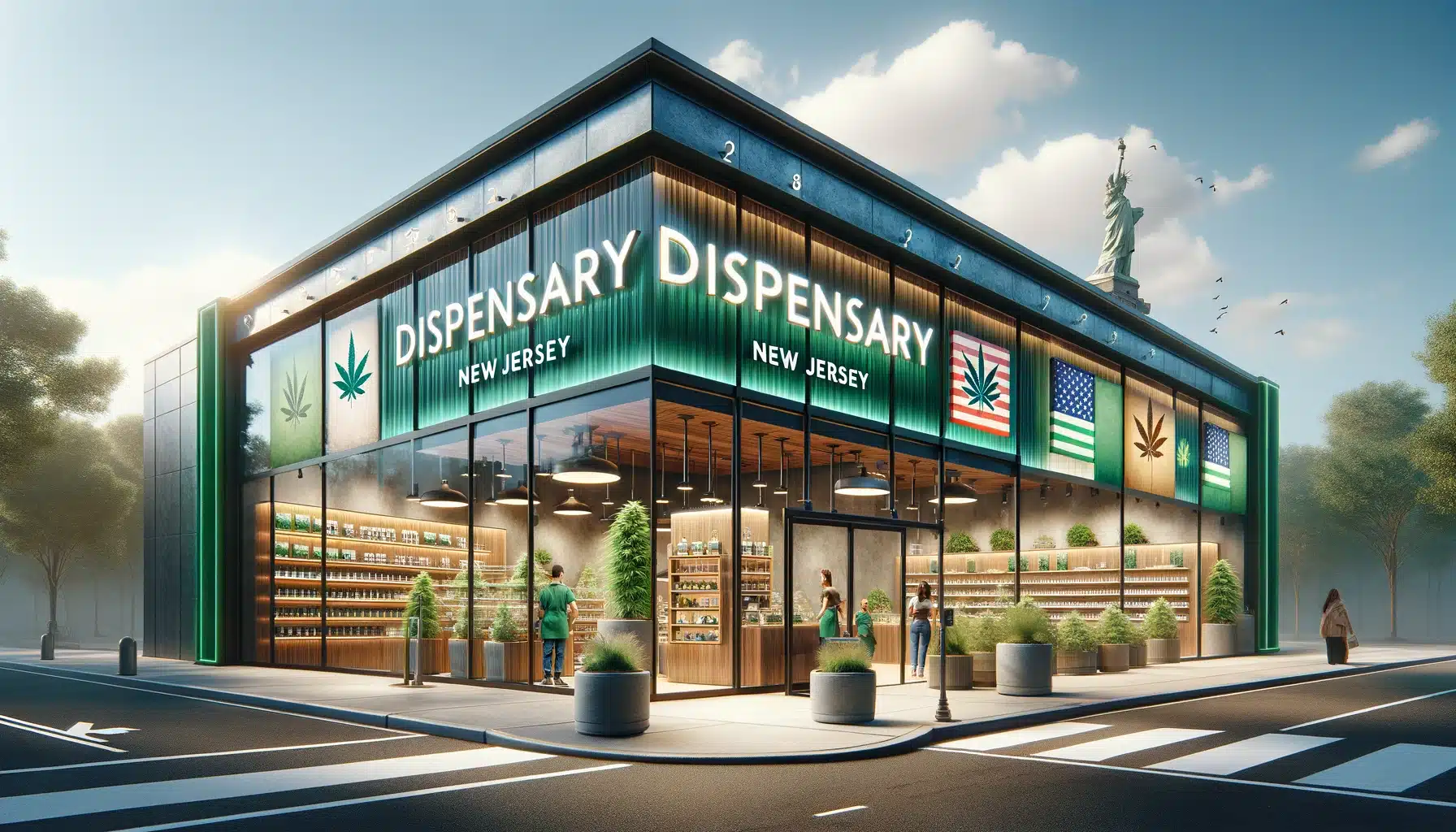On February 22nd, 2021 New Jersey became the 14th state to legalize Cannabis. When this happened, most counties had the opportunity to join in or stay away. While we’ve seen numerous counties hop aboard when it comes to participating in the cannabis markets, about 7/10 counties in New Jersey have opted out of the opportunity to participate.
In this article, we’re going to take a look at how this affects certain elements such as who can sell marijuana, where they can sell marijuana, and whether or not customers will turn to illegal sellers. It’s essential to understand the implications of these opt-outs and how this will affect the cannabis market in the long run.
Why Opt-Out?
We saw that the legalization of recreational cannabis use gained a ton of momentum in New Jersey. While there were a ton of counties that were all for participating in the marijuana market, viewing the legalization as an opportunity for growth.
Yet, some counties were heavily against it seeing issues such as public safety, regulatory complexities, and the overall potential impact on their communities. These communities are simply worried about certain elements such as impaired driving and even easier access to youth.
On the other side, they see it as these opt-out counties are encouraging illegal marijuana sales which is also detrimental to the community. Opting in allows the government to better control the use and sale of cannabis through legal channels.
So while the legalization of recreational marijuana use has tons of beneficial aspects to the economy, it also plays a major role in allowing more quality control over the product as a whole.
Impact on Conditional & Annual Licensees in New Jersey
The high opt-out rate among New Jersey counties raises questions about the number of licenses available to operate within the cannabis market. With a significant percentage of counties opting out, the pool of potential licenses may be limited, leading to increased competition for licenses in the remaining counties that haven’t yet decided.
Additionally, the focus on licensees in certain areas could worsen real estate inflation as businesses are then forced to compete in opt-in counties. This could create challenges for aspiring cannabis entrepreneurs looking to establish themselves and their businesses in areas with high demand and limited availability.
Micro-Ecosystems of Available Product
The opt-out decisions made by New Jersey counties have the potential to create micro-ecosystems of available cannabis within the state. Counties that have opted in may experience an influx of marijuana businesses, leading to an abundance of product in certain areas.
Conversely, opt-out counties may face a shortage of legal cannabis products, creating opportunities for illegal distribution of cannabis to skyrocket. This creates an even larger issue within the county and communities as there’s a lack of regulation with the product. That can either affect the potency or just the quality of the cannabis as a whole could be affected.
This difference in product availability could have a significant impact on consumer behavior, with individuals potentially traveling to opt-in counties to access legal cannabis products or turning to the illegal market in areas where legal options are scarce.
Lagging Indicator of Success and Over Saturation
The high opt-out rate among New Jersey counties may serve as an indicator of success for the state’s cannabis market, showing the diverse attitudes and approaches toward legalization within local jurisdictions. While initial projections may have painted a picture of overall participation and rapid expansion, the reality of opt-out decisions reflects a more careful approach adopted by many counties.
Moreover, the concentration of cannabis businesses in opt-in counties has the potential to lead to over-saturation in certain pockets of the state. This saturation could manifest in intensified competition among businesses competing for market share, resulting in smaller profit margins and operational challenges.
Additionally, the clustering of cannabis establishments in specific areas may create localized economic issues, impacting elements such as property values, rental costs, and community dynamics as a whole.
Contributing to Illicit Trade
One of the most concerning potential impacts of the high opt-out rate is its potential contribution to illicit trade in the licensed cannabis market. In areas where legal cannabis products are short due to opt-out decisions, consumers may turn to the illegal market to fulfill their needs.
This diversion of consumer demand to the illegal market undermines the objectives of cannabis legalization, including regulatory oversight, quality control, and revenue generation. Additionally, it poses challenges for law enforcement agencies tasked with combating illicit cannabis operations and ensuring compliance with state regulations.
Navigating the Landscape of Legalization
As New Jersey navigates the landscape of cannabis legalization, it is essential to consider the broader implications of opt-out decisions on regional economies, social dynamics, and public policy. While some counties may choose to opt out due to concerns over public safety and regulatory issues, others may be motivated by cultural attitudes, historical precedents, or competing economic interests.
Understanding the underlying factors driving these decisions is crucial to developing targeted strategies that address the unique needs and priorities of each county.
Economic Opportunities and Challenges
Despite the challenges posed by the high opt-out rate, New Jersey’s cannabis industry presents significant economic opportunities for entrepreneurs, investors, and local governments. From manufacturing to retail, the New Jersey cannabis industry has the potential to generate jobs, stimulate economic growth, and diversify revenue streams.
However, realizing these benefits requires overcoming hurdles, promoting industry innovation, and enabling fair access to market opportunities. Additionally, the concentration of cannabis businesses in opt-in counties may worsen differences in economic development, worsening socio-economic inequalities.
How to determine what municipalities have opted out?
The best way to determine what municipalities in New Jersey have opted out of the cannabis market is to check the local ordinances. While there are maps and lists online that display the counties and cities that have opted in/out in New Jersey, these resources may not be up to date and ordinances are changing constantly.
Thus, you can use the online lists and maps (links found below) as starting points, but its best to verify by looking directly at the local ordinances.
List of Municipalities That Have Opted in for the New Jersey Cannabis Program
Below is a list from cannabisindustrylawyer.com displaying the New Jersey municipalities that have opted in to the cannabis program (last updated in October 2021):
Atlantic County municipalities opting in
- Absecon
- Egg Harbor Township
- Galloway
- Pleasantville
Bergen County NJ municipalities opting in
- Cliffside Park
- Elmwood Park
- Fort Lee
- Garfield
- Hackensack
- Lodi
- Maywood
- Moonachie
- North Arlington
- Rutherford
- Saddle Brook
- Teaneck
- Wood-Ridge
Burlington County municipalities opting in
- Bass River
- Bordentown City
- Burlington City
- Cinnaminson
- Delran
- Eastampton
- Evesham
- Lumberton
- Mount Holly
- Riverside
- Shamong
Camden County municipalities opting in
- Barrington
- Collingswood
- Gibbsboro
- Oaklyn
- Pennsauken
- Somerdale
- Voorhees
- Waterford
Cape May County municipalities opting in
- Woodbine
Cumberland County municipalities opting in
- Bridgeton
- Millville
- Vineland
Essex County municipalities opting in
- Belleville
- Bloomfield
- Irvington
- West Orange
Gloucester County municipalities opting in
- Elk
- Franklin
- Greenwich
- Woodbury
- Woolwich
Hudson County municipalities opting in
- Bayonne
- East Newark
- Jersey City
Hunterdon County municipalities opting in
- Flemington
- Lambertville
Mercer County municipalities opting in
- Ewing
- Hamilton
- Lawrence
Middlesex County municipalities opting in
- Highland Park
- New Brunswick
- North Brunswick
- South River
- Woodbridge
Monmouth County municipalities opting in
- Aberdeen
- Eatontown
- Freehold Borough
- Matawan
- Neptune City
- Neptune Township
- Ocean Township
- Red Bank
Morris County municipalities opting in
- Boonton
- Butler
- Rockaway Borough
- Rockaway Township
Passaic County municipalities opting in
- Haledon
- Passaic
- West Milford
Salem County municipalities opting in
- Lower Alloways Creek
Somerset County municipalities opting in
- Franklin
- North Plainfield
- Somerville
- South Bound Brook
Sussex County municipalities opting in
- Andover Township
Union County municipalities opting in
- Elizabeth
- Plainfield
- Rahway
- Union
Warren County municipalities opting in
- Frelinghuysen
- Hackettstown
While the list above is comprehensive, it is best to double check with your target municipality to ensure that they are still accepting new entrants to their jurisdiction.
Useful Resources
If you embarking on finding the right location for your New Jersey cannabis business, you may find the following resources useful:
- New Jersey Cannabis Regulatory Commission – Here is the website to the governing agency that oversees New Jersey’s cannabis industry. You can find everything from laws to resources to important updates on their website.
- Map showing which municipalities allow for retail stores in New Jersey
- Map showing currently operating dispensaries in New Jersey
- List of the Municipalities Have Opted in for the New Jersey Cannabis Program
Conclusion
The high opt-out rate among New Jersey counties presents a complicated landscape for the state’s cannabis industry. While some regions have embraced the opportunity to participate in the market, others remain cautious, leading to disparities in product availability, competition for licenses, and potential challenges in combating illegal trade.
Moving forward, policymakers, industry stakeholders, and local jurisdictions must work collaboratively to address the implications of the opt-out decisions and ensure the success and sustainability of New Jersey’s legal cannabis market.
By encouraging cooperation, transparency, and regulatory clarity, New Jersey can unlock the full potential of its cannabis industry while mitigating the risks associated with high opt-out rates.
Speak with one of our cannabis marketing experts to learn how we can help you launch a successful brand in the New Jersey cannabis market. From cannabis SEO to website design to packaging, we’ve got you covered.







